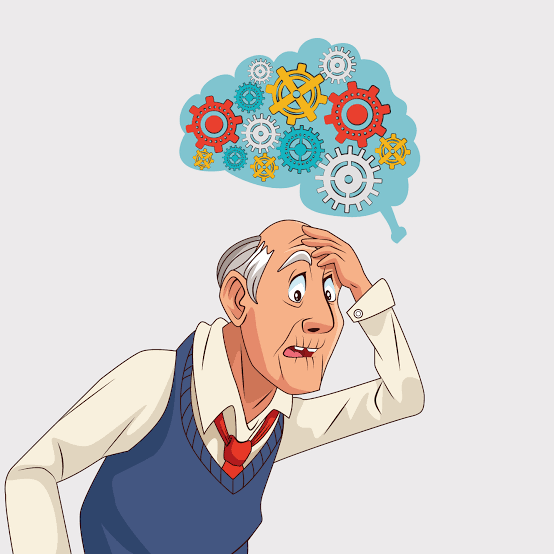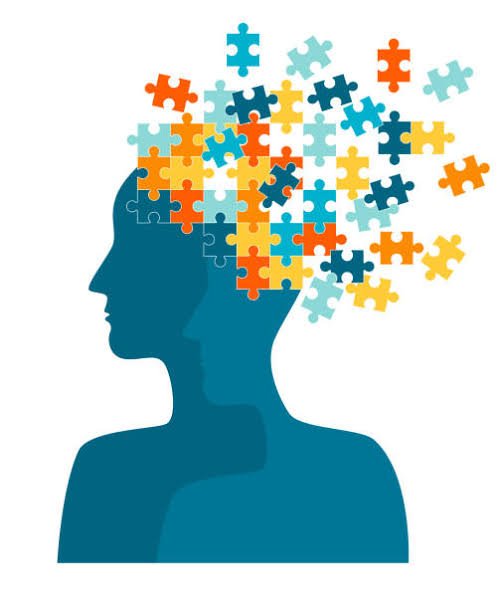Alzheimer’s disease is a brain disorder that gets worse over time. It’s characterized by changes in the brain that lead to deposits of certain proteins. Alzheimer’s disease causes the brain to shrink and brain cells to eventually die.
 Alzheimer’s disease is the most common cause of dementia — a gradual decline in memory, thinking, behavior and social skills. These changes affect a person’s ability to function.
Alzheimer’s disease is the most common cause of dementia — a gradual decline in memory, thinking, behavior and social skills. These changes affect a person’s ability to function.
Of the about 55 million people worldwide with dementia, 60% to 70% are estimated to have Alzheimer’s disease.
Symptoms of Alzheimer’s Disease
- Repeat statements and questions over and over.
- Forget conversations, appointments or events.
- Misplace items, often putting them in places that don’t make sense.
- Get lost in places they used to know well.
- Eventually forget the names of family members and everyday objects.
- Have trouble finding the right words for objects, expressing thoughts or taking part in conversations.
- Difficulty in Thinking and reasoning
- Difficulty in Making judgments and decisions
- Difficulty in Planning and performing familiar tasks
- Changes in personality and behaviour
- Depression.
- Loss of interest in activities.
- Social withdrawal.
- Mood swings.
- Distrust in others.
- Anger or aggression.
- Changes in sleeping habits.
- Wandering.
- Loss of inhibitions.
- Delusions, such as believing something has been stolen.

A number of conditions can result in memory loss or other dementia symptoms. Some of those conditions can be treated. If you are concerned about your memory or other thinking skills, talk to your health care provider.
Causes for Alzheimer’s Disease
The causes of Alzheimer’s disease are complex and not fully understood.
- Age – Advanced age is the most significant risk factor for developing Alzheimer’s disease. The risk increases significantly after the age of 65.
- Genetic – Certain genetic factors can increase the risk of developing Alzheimer’s disease.
- Family History – Having a family history of Alzheimer’s disease can increase an individual’s risk of developing the condition.
- Amyloid Plaques and Tau Tangles – Alzheimer’s disease is characterized by the accumulation of abnormal protein deposits in the brain called amyloid plaques and tau tangles. These deposits disrupt normal brain function and contribute to the progression of the disease.
- Neurotransmitter Imbalance – Alzheimer’s disease is associated with a disruption in the levels of certain neurotransmitters, including acetylcholine, which is important for memory and cognitive function.
- Chronic Inflammation – Ongoing inflammation in the brain may contribute to the development and progression of Alzheimer’s disease.
- Lifestyle Factors – Certain lifestyle factors, such as a sedentary lifestyle, poor diet, obesity, smoking, and chronic health conditions like diabetes and cardiovascular disease, may increase the risk of developing Alzheimer’s disease.
 Risk factors
Risk factors
Age
Increasing age is the greatest known risk factor for Alzheimer’s disease.
Family history and genetics
The risk of developing Alzheimer’s is somewhat higher if a first-degree relative — your parent or sibling — has the disease.
Sex
Overall there are more women with the disease because they tend to live longer than men.
Head trauma
Several large studies found that people age 50 years or older who had a traumatic brain injury (TBI) had an increased risk of dementia and Alzheimer’s disease.
Air pollution
Studies in animals have found that air pollution particulates can speed the breakdown of the nervous system.
Excessive alcohol consumption
Drinking large amounts of alcohol has long been known to cause brain changes and early dementia.
Poor sleep patterns
It has shown that poor sleep patterns, such as trouble falling asleep or staying asleep, are linked to an increased risk of Alzheimer’s disease.
Lifestyle and heart health
- Lack of exercise.
- Obesity.
- Smoking or exposure to secondhand smoke.
- High blood pressure.
- High cholesterol.
- Poorly controlled type 2 diabetes.
Lifelong learning and social engagement
Studies have found that socializing and engaging in activities that stimulate the mind throughout life can lower the risk of Alzheimer’s disease.
Complications
- Tell someone about being in pain.
- Explain symptoms of another illness.
- Follow a treatment plan.
- Explain medicine side effects.
As Alzheimer’s disease moves into its last stages, can lead to other health problems such as:
- Inhaling food or liquid into the lungs.
- Flu, pneumonia and other infections.
- Falls.
- Fractures.
- Bedsores.
- Poor nutrition or dehydration.
- Constipation or diarrhea.
- Dental problems such as mouth sores or tooth decay.
Ayurveda Treatment principles:
- Smrtibhramsa chikitsa
- Prana vatanulomana (pranavaha sroto dushti chikitsa)
- Dhatukshayajanya vata prakopa chikitsa
- Mastishka Sosha chikitsa (Mastishka visesha chikitsa)
- Ghrita & kshira oushadha prayoga
- Medhya oushadhas
- Mano buddhi prasadana
- Balya- brmhana oushadhas
- Shodhana púrvaka shamana chikitsa
- Ojaskara oushadhas
- Rasãyana (medhya-brmhana & vaya sthapana rasayanas)
- Daiva vyapasraya chikitsa
Ayurveda Panchakarma Treatment –
- Abhyangam
- Talam
- Shiro picchu
- Shiro lepana (paste of amalaki prepared in takra)
- Shirodhara
- Shiro vasti
- Purana gritha administration
- Snehapāna
- Mrdu virechana
- Nasya – pratimarsa – brmhapa (taila/ ghrta)
- Kaya seka
- Shashtika shali pinda sweda
- Anuvasana vasti (by medhya oushadhast mamsa rasa siddha taila)
- Asthapana vasti
- Rajayapana vasti
- Medhya vasti
Ayurveda internal medicines:-
Kashaya: –
- Bala saireyakadi Kashaya
- Balakulatthādi Kashaya
- Brahmidräkshadi Kashaya
- Chandanadi Kashaya
- Dhanwantaram Kashaya
- Drakshadi Kashaya
- Jivaniya gana Kashaya
- Kalyanakam Kashaya
- Kulattha lasunairandādi Kashaya
- Mahäkalyanakam Kashaya
- Maharasnādi Kashaya
- Sanjasthapanam Kashaya
- Vidaryadi Kashaya
Arishta / asava :
- Ashwagandharishta
- Balarishta
- Dashamularishta
- Saraswatharishta
Churna :-
- Ashwagandha + bala mula churna
- Atmagupta churna (5 gm) with kshira
- Jatamamsi churna
- Kacchuradi churna(for talam)
- Kalyanavaleha churna
- Shankhapushpi churna
- Saraswata churna
Gulika/ Vati/ Guggulu:-
- Dhanwantaram gulika
- Gordcanadi gulika
- Manasamitra vataka
- Panchamrita loha guggulu
- Suvarnamuktadi gulika
Taila: –
- Bala taila
- Balaswagandhadi taila
- Dhanwantaram taila & avartti
- Gandharveranda taila (for virechana)
- Kshirabala taila & avartti
- Lakshadi taila
- Mahāmasha taila
- Masha taila
- Maha narayana taila
- Narayana taila
- Prasarani taila
- Sahacharadi taila
- Suddhabala taila
- Varuni taila
- Vatasani taila
Ghrita: –
- Amritaprasha Ghrita
- Brahmi Ghrita
- Brahtchagalädi Ghrita
- Indukäntam Ghrita
- Ghritamanda
- Jivantyadi Ghrita
- Kalyānakam Ghrita
- Mahakalyänakam Gritha
- Mahāsäraswata Ghrita
- Pancaganvya Ghrita
- Saraswata Ghrita
- Vidäryādi Ghrita
- Vidari kalyanakm Ghrita
Lehya: –
- Brahma rasayana
- Chyavanaprasha
- Kushmanda rasayana
- Narasimha rasayana
Bhasma: –
- Abhraka bhasma
- Rajata bhasma
- Swarnna bhasma
Rasa/ dhatu/ Ioha preparations: –
- Brahmi vati
- Brihat vatachintāmani rasa
- Chaturmukha rasa
- Makaradhwaja rasa
- Pürnachandrodaya rasa
- Siddhamakaradhwaja rasa
- Smrtisagara rasa
- Yogendra rasa
Rasayana: –
- Mandukaparni rasayana
- Medhya rasayana
- Shankupushpi rasayana
- Amalaki rasayana
Prevention
Evidence suggests that taking steps to reduce the risk of cardiovascular disease may also lower your risk of developing dementia.
To follow heart-healthy lifestyle choices that may reduce the risk of dementia:
- Exercise regularly.
- Eat a diet of fresh produce, healthy oils and foods low in saturated fat.
- Follow treatment guidelines to manage high blood pressure, diabetes and high cholesterol.
- If you smoke, ask your health care provider for help to quit.
- Other studies have shown that staying engaged mentally and socially is linked to preserved thinking skills later in life and a lower risk of Alzheimer’s disease.
- This includes going to social events, reading, dancing, playing board games, creating art, playing an instrument and other activities.
- Yoga, Pranayama and Medication.
Treatment of Alzheimer’s Disease in Ayurdhama Ayurveda:
- After proper consultation individual customized treatments will be planned by our expert doctors.
- Depending upon the condition different types of Ayurveda Panchakarma treatments, Yoga sessions and internal medicines are advised.
- Schedule an appointment for consultations.
PACKAGE INCLUDES
- Initial Consultation with Ayurveda Doctor and daily follow up consultation
- Accommodation
- All Ayurvedic Meals (Breakfast, Lunch & Supper) & herbal drinks
- Advice on Diet & Lifestyle Management
- Ayurveda Therapies – Customized for each client.
- Yoga (once a day – Yoga Asanas, Breathing, Meditation and Relaxation)
RESERVATION DETAILS:
- We are committed to keep up the quality of our treatment programs and we take only a limited number of patients each month.
- So we advise you to reserve your treatment programs a minimum one month in advance.
- The 50% charges of the treatment programs should be paid in advance to reserve the treatment programs.
- The advance deposit will be deducted from the total treatment programs and the balance must be paid on the first day of the treatment program.



 Risk factors
Risk factors